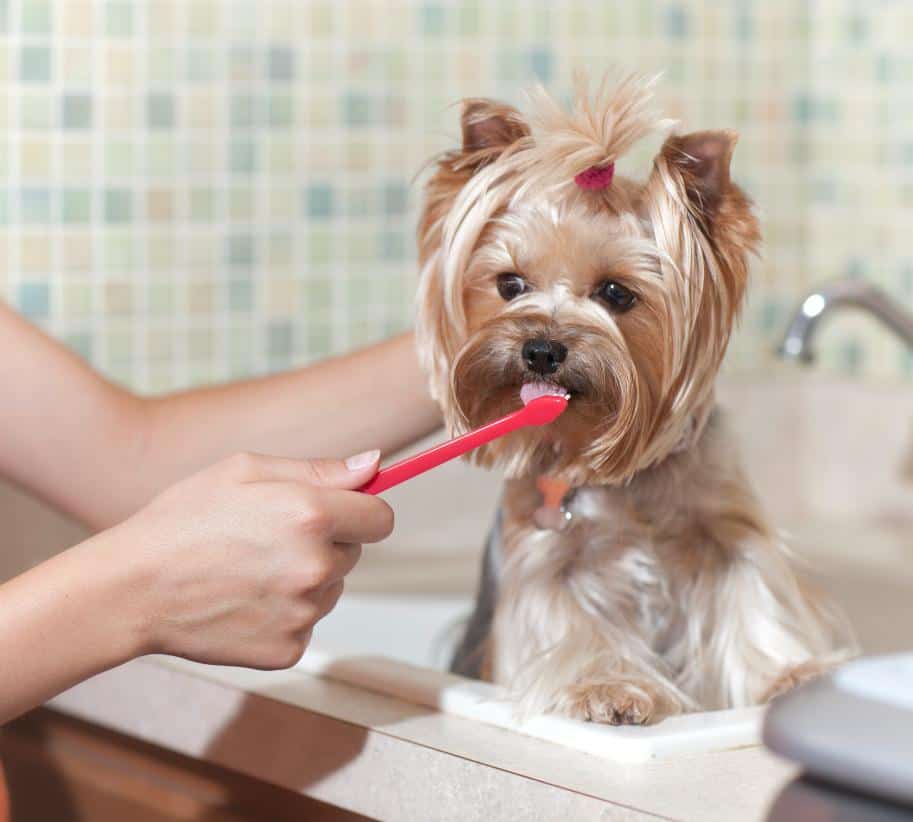Importance of Pet Dental Care

Imagine going more than a day without brushing your teeth. Pretty gross, right? Well, many pets go their entire lives without ever having their teeth brushed, let alone professionally cleaned and polished. In fact, allowing a pet’s teeth and gums to go ignored and untreated is directly connected to a variety of serious health conditions. Because we know how important a healthy mouth is to the whole animal, we recommend annual professional pet dental cleanings.
It’s All Connected
A healthy pet most definitely has a healthy mouth. In fact, you can’t really achieve optimal wellness if the teeth and gums aren’t fully and regularly cared for. Luckily, it is relatively easy to add certain elements to the home routine and add an annual professional cleaning.
In addition to a variety of water additives, chews, treats, and diets suggested by the Veterinary Oral Health Council, pets should experience regular tooth brushing at home. Why? Because without interruption, plaque and oral bacteria harden into tartar. Pet dental care products can reduce plaque and oral bacteria and delay tartar from accumulating.
Why Tartar is So Damaging
Left alone, tartar builds up on the teeth, especially on the molars. As the tartar build-up grows on the bottoms of the teeth, the gum line starts to recede. This allows oral bacteria to grow, spread, and move into the bloodstream where it eventually lands in the body’s major organs. Disease of the heart, liver and kidneys can be directly linked to poor oral health and unchecked bacteria in the mouth.
Professional Pet Dental Care
At every wellness exam, we take a peek inside a pet’s mouth to assess the appearance of the teeth and gums. Naturally, in most pets over age three, yellow or brown discoloration, bad breath, and red, swollen gums are usually present.
At this point, a dental cleaning, scaling, and polishing would be necessary to remove tartar and eliminate oral bacteria. However, digital X-rays taken while a pet is under anesthesia may reveal extensive damage below the gum line that may result in tooth extractions, antibacterial medication, and more.
Preparing for Dental Cleanings
General anesthesia requires certain diagnostics to ensure a pet is healthy enough to undergo the medication and procedure. We carefully monitor vital signs before, during, and after dental procedures under anesthesia. Because most animals with dental disease are adults or seniors who are also battling other medical conditions, we work hard for their safety, security, and comfort.
Elements of an Exam and Procedure
A pet dental exam is thorough and complete. We look for abscesses, tooth resorption, fractures, pulp exposure, loose tissue attachments, and cancer. We rely on radiographs for evidence of disease below the gums. If periodontal disease is caught early on, cleanings, scaling, and polishing of the teeth can go a long way to mitigating its progressive nature.
Pet Dental Cleanings
Dogs have 42 teeth, cats 30. With a preventive approach to their dental needs, we can ensure they not only keep all their teeth but live without pain, discomfort, infection, and disease.
Please call us at (916) 349-2755. Our veterinarians are always happy to assist you at Cherry Creek Veterinary Hospital.
